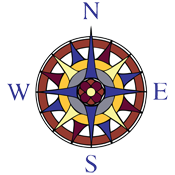English: Advanced Literary Criticism & Composition- Overview of Literary Movements *ONLINE/TRANSITION*
Description:
Overview
Advanced Literary Criticism & Composition is a seminar-style course that introduces the high school student to a deeper investigation into literary movements and literary themes throughout the ages. Like art, literature is a writer's response to his world and a reflection of his society and contemporary culture. Literary genres evolved in response to significant events, prevailing philosophies, and impactful innovations and discoveries in the writer's lifetime. Literary movements create a timeline that reflects those influences. In this course, students will read and evaluate selections from a number of literary movements such as: Romanticism, Dark Romanticism, Gothic, Transcendentalism, Realism, Naturalism, Magical Realism, Stream of Consciousness, Expressionism, Harlem Renaissance, Modernism, Beat, etc., and make connections to significant effects of the period.
Advanced composition in this course will move beyond personal interpretation of the work ("What do I think?") and transition into two Schools of Literary Criticism: Biographical Criticism, which views literature through the personal world of the writer ("What did the writer think?"), and Historical/Societal Criticism which views literature through the society/times of the writer ("What was going on around the writer?")
Literature
First semester of Advanced Literary Criticism will include a chronological grouping of literature in "movements" and a study of how movements combine to create genre. Students will be assigned brief, weekly mini-research assignments on history, geography (if applicable), music and art of the period, politics, religion, philosophy, author biography, etc, to establish a foundation and background information on the literary movement. Students will discover how literature reflects the people, events, discoveries, and ideology of the time and how literary movements provide clues to the philosophical, scientific, and societal climate. The class will look at wars and conflict as a creative element that drives evolution in literary movements. The types of literature used to examine movements will span novels, short stories, poetry, letters, political writings, slave narratives and analytical essays. Examples of literature that will be read first semester include selections from the Odyssey (Homer), Arabian Nights, Don Quixote, Jonathan Swift and poetry by Shakespeare. The full reading list will be presented in the course syllabus at the beginning of the term. In addition, students will be asked to read several selections over the summer.
Composition
First semester Composition will apply the Schools of Literary Criticism to craft essays that demonstrate and understanding of movements in the broader context of literature- across eras, across genre/form, across writers and across the world. Teens will write a series of short essays that use different "filters" or "lenses" to view literary genres. Students will develop skills in notetaking, adding research to their literary essays, and managing their writing portfolios. They will also perform parallel, independent research in literature to develop a presentation on a movement or era culminating a semester project.
Class Structure This course is part of a custom curriculum developed and team-taught by Anne Sharp and Melanie Kosar. The courses are designed in a sequential program that complements the developmental skills of the adolescent learner. It is a seminar-style approach that mirrors university literature and writing classes. Note:All class meetings will be in a virtual classroom, providing synchronous online instruction via videoconferencing for fall semester. At the instructors' option, the class may transition to in-person instruction for second semester as COVID-19 scenarios improve.
Topics in this Series: Overview of Literary Movements (Semester 1) and Survey of Themes in Literature (Semester 2). Students continuing from first semester receive priority pre-registration for second semester.
Prerequisites: Students should be able to read at grade level. Students should have had a prior course in literature to have established a firm foundation in basic literary elements and form.
Workload: Students should expect to spend 3-4 hours per week outside of class. In addition, students should complete the summer assignments consisting of the literature identified above and a hand-out of literary terminology to learn.
Assignments: will be posted on a Google Classroom.
Assessments: are portfolio-based. Students will create a digital portfolio that incorporates annotated reading lists, reflects individual interests and accomplishments and showcases a variety of writing. See the Compass memorandum for more information on assessments in Language Arts.
Textbook: Students should purchase or borrow the assigned literature. In some cases, specific editions will be identified with ISBN numbers so students can be on the "same page" (literally!)
What to Bring: Students should bring paper or notebook, pen or pencil, current literature selection, and personal writing journal to both class meetings each week.
Credit: Homeschool families may wish to count this course as a credit in English for purposes of a high school transcript.
We are sorry but registration for this event is now closed.
Please contact us if you would like to know if spaces are still available.

